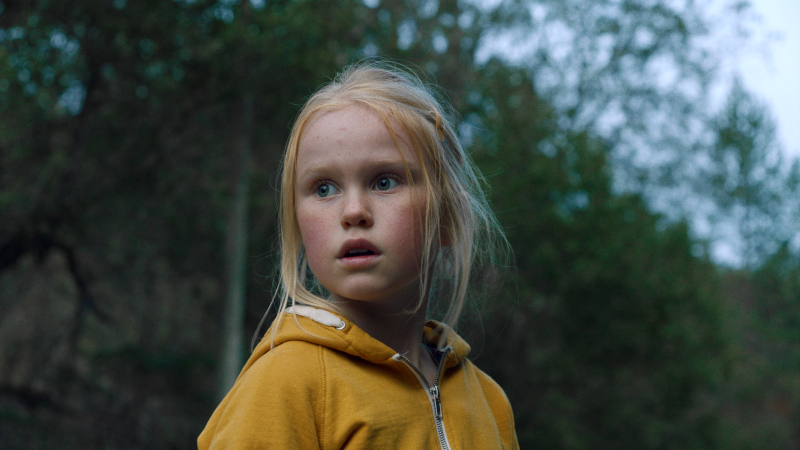Director – Eskil Vogt – 2021 – Norway – Cert. 15 – 117m
***
A small group of pre-teen children begin to explore their supernatural powers with devastating results – out in cinemas on Friday, May 20th
Two children live with their parents on a very ordinary housing estate near woodlands leading to a footbridge over a nearby motorway. Ida (Rakel Lenora Fløttum) enjoys going outside to play with other kids of her own age, seven or eight. Often, though, her mum will ask her to take her autistic, older sister Anna (Alva Brynsmo Ramstad), 11, with her, which Ida doesn’t really like having to do.
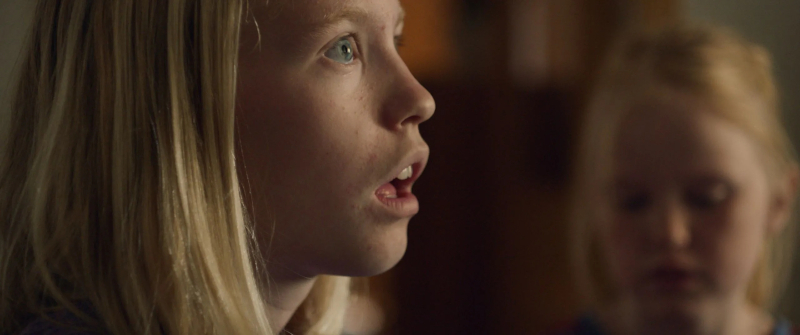
Anna is autistic and lives largely in her own internal world. When Ida goes outside to play, knowing Anna will likely sit happily in the same place for several hours if left to her own devices, Ida will leave Anna on her own while Ida plays with other kids her own age – Ben (Sam Ashraf) or Aisha (Mina Yasmin Bremseth Asheim). Ida assumes that Anna will still be there when she comes back.
Ben is troubled by a strange ability he possesses which he doesn’t understand. He can control people. Alone in the woods with Ida, he explains this to her. She doesn’t really understand him, so agrees to have him demonstrate. He makes her climb an abandoned fridge without her knowng what she’s doing. Learning she has a fear of snakes, he has her hold a small fragment of tree branch and causes her mind to see it as a snake. All we see is the branch in her hand breaking.
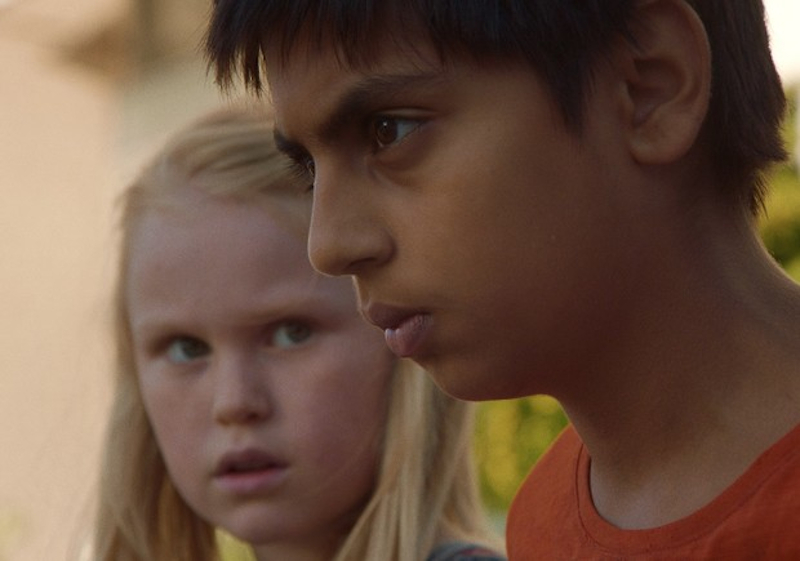
Towards the end, when Ben traps Ida in a vision of a dark woods with a one-legged bogeyman lumbering towards her, we are shown Ida’s vision of the dark woods rather than her walking confused in the sunlit woods, at which point the proceedings become less believable or effective than when they relied more on the power of the viewer’s imagination.
All four kids possess psychic powers, as becomes apparent in a few incidents here and there where a fallen tree trunk breaks in two or a rock suddenly goes flying through the air. For most of the film, such cinematic tricks are used sparingly, which renders them all the more effective. Much of the film is told from Ida’s point of view, although there are also sequences from that of one or other of her two friends. Autistic Anna features heavily too, but the film never attempts to portray scenes from her point of view. It does, however, establish a telepathic bond between Aisha and Anna with both starting to speak the same words simultaneously, even when they’re in completely separate locations.
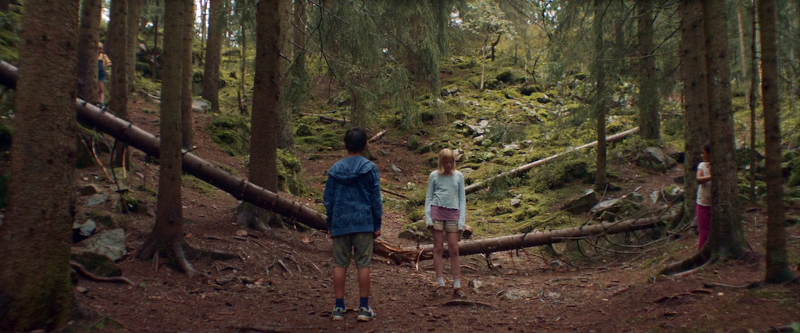
The three younger kids appear to live in a moral vacuum with no sense of right and wrong. (As there’s no real attempt to get inside the head of the autistic Anna, the film doesn’t really go there as far as she’s concerned. Perhaps this is a form of prejudice, or at least unconscious bias.) At school, Aisha finds fragments of broken glass and puts them in the toes of other kids’ removed shoes, including Anna’s. Kids later put on their shoes and sustain cuts and bleeding as a result.
Ida tags along with Ben as he torments a cat, eventually dropping it several storeys down a stairwell in their school. It survives with a broken leg, and he later finishes it off by crushing its skull with his foot with a sickening cracking sound, an action at which Ida is clearly uneasy. Yet elsewhere, Ida is hardly a paragon of virtue herself, scarcely comprehending the gravity of temporarily abandoning her autistic sister outside.
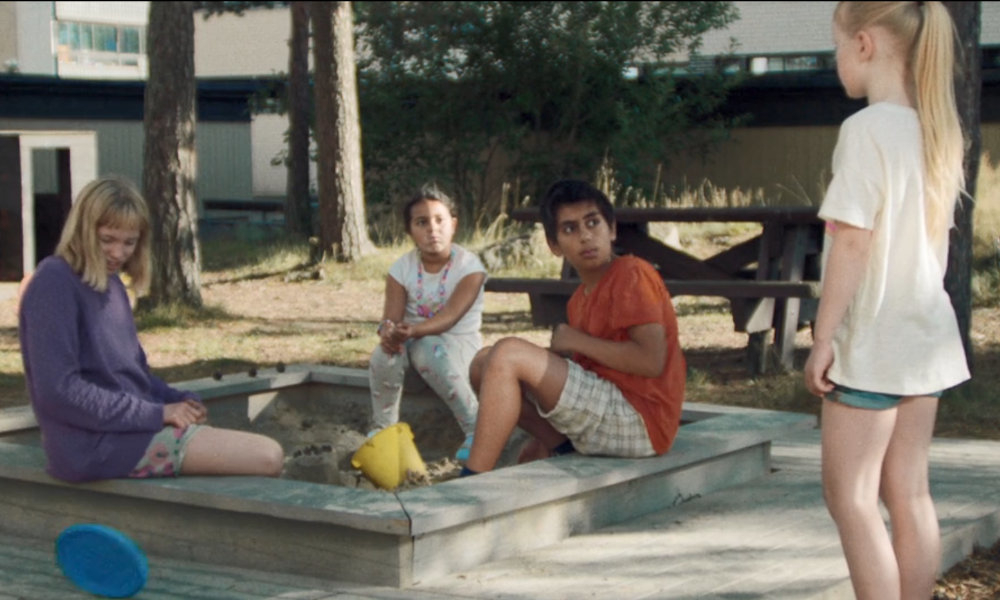
Ben is the victim of bullying by an older, football-playing kid, but his way of dealing with this is to vindictively take it out on other people, including not only the bully but also others. There’s no indication that his mum has treated him badly, but after moving a boiling pot around on the stove while she’s cooking, he sees nothing wrong with flying a frying pan into her head or, worse, toppling the boiling pan onto her prone body while she lies collapsed. The bully is clearly an unpleasant sort, so when Ben causes something unpleasant to happen to him, we’re less upset, disturbing though Ben’s behaviour may be.
There are cinematic precedents to all this. The most obvious is Carrie (Brian de Plama, 1976), the obvious difference being that Carrie is goaded into directing telekinetic mayhem at her peers by bullying and victimisation. You might argue the same thing for Ben here, but he seems a nasty bit of work who delights in the suffering of others from the get go. (It’s true that the film Carrie seems to take a similar delight during its finale, but its put-upon heroine seems far more sympathetic.)
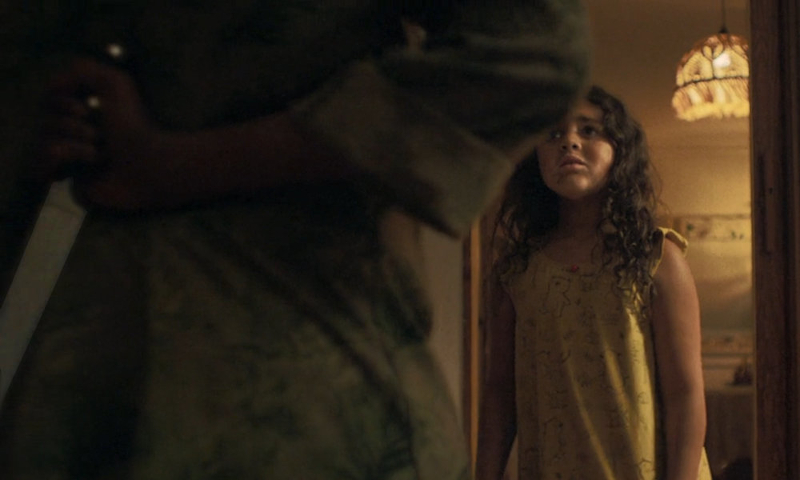
Then there is Scanners (David Cronenberg, 1981) with its duelling adult psychics who cause one another’s heads to explode. A similar duel occurs at the end here between Ben and Anna, handled in less spectacular, lower key style. And Village Of The Damned (Wolf Rilla, 1960) posits a homogenous group of children able to exert mind control on those around them, but never really gets into the child psychology.
All the above present characters possessing advanced powers, but the similarly titled The Innocents (Jack Clayton, 1963) plays with no such conceit in its ghost story about a governess tormented by her two young charges. Here, the suggestion that the children are tormenting the governess sits alongside the equally powerful suggestion that the kids are completely innocent and their culpability is merely a figment of the governess’ imagination. That’s a difficult balancing act to pull off, and the film does it brilliantly. None of the other films mentioned, including the current offering, attempt anything so subtle.
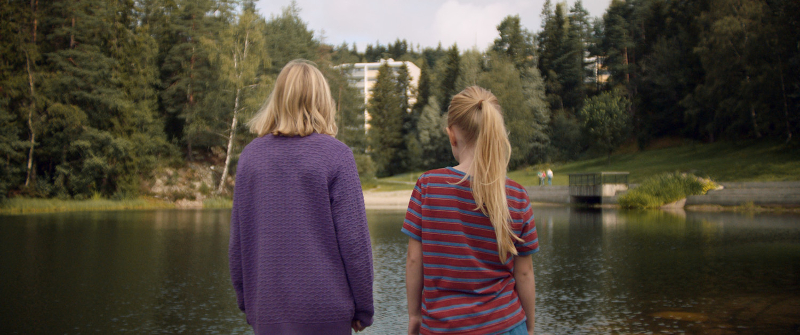
The 2021 film however has something else going for it: terrific performances by its four child leads. Vogt is a screenwriter of some repute, writing the films of Joachim Trier (The Worst Person In The World, 2021) and gets frankly incredible, naturalistic performances out of his four juvenile leads which anchor the viewer into what’s going on. At the same time, though, the way these kids treat their fellow human beings really doesn’t endear you to them. The technical aspects of the film may be laudable, but the question remains: why would anyone want to spend time in the company of characters like this, kids or otherwise?
There’s a rhetoric that often goes along with extreme cinema, phrases like “not for the faint-hearted” issuing a challenge to the viewer: dare he or she see this film? Are they strong or brave enough? Sometimes films play to that, but maybe, just maybe, directors sometimes subject their audience to something those audiences would rather not see. And not something it would be good for them to see either – rather, something that it’s genuinely unpleasant to watch.
The Innocents is out in cinemas in the UK on Friday, May 20th.
Trailer:
